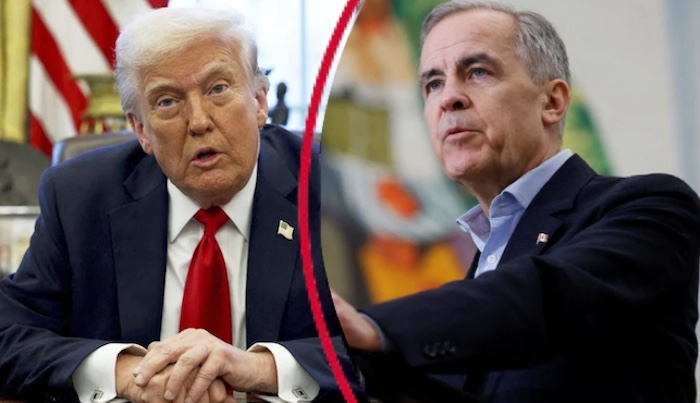
The spotlight has shifted to online gambling as the culprit for consumers having no money left to pay their debts, and for students gambling away their Nsfas money.
Online gambling is not regulated in South Africa, but what does government do? It does not make a law to regulate online gambling, but quickly makes a plan to share in the spoils and tax it.
National Treasury published a draft national online gambling tax discussion paper this week for public comments, saying the gambling industry has evolved over the years from traditional forms of gambling to the greater use of online gambling.
“This has been influenced by technological advancements and increased access to the internet and electronic communication tools, especially after the Covid-19 pandemic. Gambling is now easily available online and it is accessible almost anywhere and at any time,” Treasury says in a statement.
The growth of online gambling also brings challenges, Treasury says, such as problem gambling and social issues, which require continued monitoring and responsive regulation. “From a public policy perspective, there should be no problem with recreational gamblers as they do not place any external costs on society.
ALSO READ: Online gambling and betting advertising is non-compliant with Gambling Act — minister
The cost of online gambling on society
“However, to the extent that problem gambling imposes a cost on society, it is in the public interest that such behaviour be regulated or reduced. Therefore, the discussion paper provides an overview of the gambling industry in the country, considers the current legislative framework and international practices on the taxation of online gambling and proposes a new national online gambling tax for South Africa.”
Now, to stop the rapid growth of online gambling and the social harms that follow, Treasury is considering a 20% tax that could generate about R10 billion in additional revenue. Treasury says its main purpose will be to discourage the adverse effects of problem and pathological gambling.
Data from the National Gabling Board shows that South Africans wagered about R1.5 trillion in the country’s gambling industry in 2024/25, an increase of almost one third on the previous financial year.
The discussion paper tries to find ways to reverse the steep increase in online gambling that is driven by smartphone use and deepening economic hardship, while the country has one of the highest unemployment rates in the world.
Activists are now calling on the government to enact stronger regulations to manage the growth of online gambling and therefore limit its social impact.
ALSO READ: Gambling addiction referrals rise 40% as billions spent on betting advertising
Gambling legislation in SA does not include online gambling
Gambling has been part of South African society in one form or another and dates to before the major changes in the post-1994 era. In 2004, the National Gambling Act was repealed by the new National Gambling Act, and it regulated various forms of gambling activities for:
- The protection of society from the over-stimulation of latent gambling through the limitation of gambling opportunities
- The protection of players and the integrity and fairness of the industry through the strict control and supervision of the industry
- The uniformity and harmonisation of policy and legislation at all levels of government and across provinces through minimum norms and standards, cooperation and co-ordination
- The generation of revenue and taxes for provincial government and for good causes
- The economic empowerment of the historically disadvantaged and
- The promotion of economic growth, development and employment.
The new Act further made interactive gambling unlawful by providing that people not engage in or make available an interactive game, except as authorised in terms of the Act or any other national law.
However, it provided for the NGB to develop national policy to regulate interactive gambling within one year and for the minister of trade, industry and competition to introduce legislation in parliament within two years after the effective date, respectively.
ALSO READ: R1.5 trillion turnover: Online gambling snares South Africa’s youth
The legal gambling industry in SA and its revenue
The National Gambling Amendment Act, which regulated interactive gambling and provided for implementing regulations, was legislated but has not yet been implemented. The current regulatory framework provides a necessary context for the evolution of the sector and is discussed further later in this document.
The South African gambling sector is a diverse and regulated industry, which includes casinos, betting on horse racing, sport and other contingencies, limited payout machines (LPMs) and bingo. According to data from the NGB, South Africa had at the end of the previous financial year:
- 36 operational casinos
- 2 546 operational LPMs
- 73 operational bingo outlets
- 325 operational totalisator outlets and
- 553 operational bookmaker outlets.
For the previous financial year, it was estimated that a total of R4.8 billion was collected in gambling tax revenue. Betting contributed R2.4 billion, which represented 49.9% of the tax revenue, which comprised online betting at about 39 percentage points and retail betting at 10.9 percentage points.
Almost 85% of the betting revenue comes from sport betting and other contingencies through bookmakers, complimented by horseracing at 13.6%,, also through bookmakers. Totalisators, both for horse racing and sports betting, represent a small segment of the activities and revenue collected.
On the other hand, casinos contributed R1.8 billion, representing 36.5% of the tax revenue. LPM and bingo contributed a combined revenue of R658 million, with individual mode share of 10.2% for LPM and 3.4% for bingo. The revenue collected is reported to be 19.2% higher than the taxes/levies in the previous financial year.
ALSO READ: R1.1 trillion worth of online bets in a year: Does SA need to rein in digital gambling?
Treasury proposes 20% tax on online gambling to limit it
“Due to the surge in online gambling and its impact on society, it is proposed that a 20 per cent tax is applied on gross gambling revenue from online betting, including interactive gambling, which would be in addition to the currently applied provincial taxes,” Treasury says in the discussion document.
However, this national gambling tax would be in addition to the provincial tax rates and would lead to a tax rate of between 26% and 29%.
The regulatory environment of gambling is shaped by the fact that gambling, other than lotteries and sports pools, is an area of concurrent legislative competence between national and provincial governments, Treasury says.
“However, it has not kept pace with the gambling developments over the years, creating regulatory gaps. This does not prohibit the taxation of online or interactive gambling to internalise the social costs related to gambling activities. To this end, a national tax of 20% on the gross gambling revenue of the online and interactive gambling industry is proposed.”
- The draft national online gambling tax discussion paper has been released for public comments and is available on the National Treasury website: www.treasury.gov.za. Forward your written comments to gamblingtax@treasury.gov.za by the close of business on 30 January 2026.


